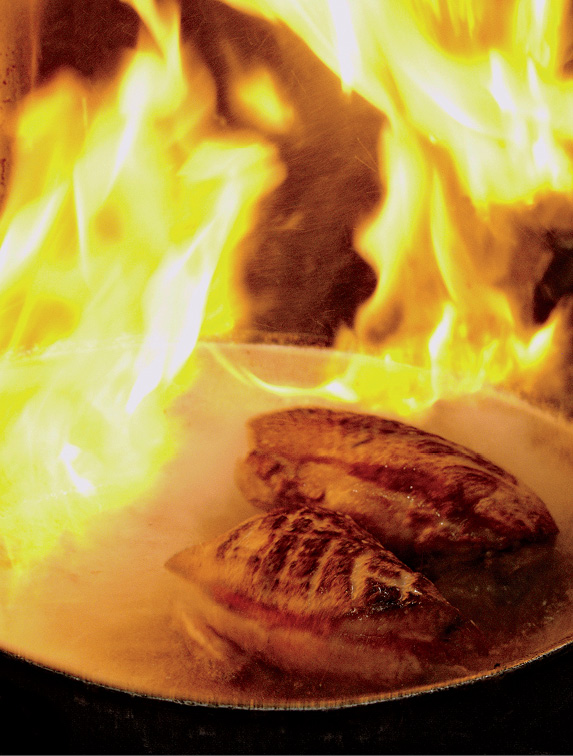Tips for Cooking Duck

Before you start cooking, it is a good idea to understand the properties of this wonderful meat. Simply roasting or smoking a whole duck will likely produce greasy meat and rubbery skin. Grilling it over direct heat will result in flames emanating from all orifices of your grill. But if you know how to cook the bird, duck skins can be crisp and glow like burnished bronze.
The skin. Duck skin is thicker than chicken and turkey skin, and there is a layer of fat underneath that can be ¼ inch or more deep. That’s because waterfowl were designed to swim in icy cold waters and forage in frozen fields so they need the fat for insulation, energy storage, and flotation. This alone is a good reason to cook duck outdoors, unless you have a very high-volume exhaust fan, because the dripping fat can set off fire alarms.
The meat. Because ducks fly vigorously, unlike chickens, duck breasts are slow-twitch muscles. They are a rich purple color when raw, loaded with darkly pigmented myoglobin like beef or lamb, and when cooked to medium-rare they can be juicy and have all the luxe richness and succulence of a fine steak.
The fat. Duck fat is in a league with bacon fat as a frying medium, rich and silky. It can keep for months in the fridge and you can even freeze it for a year or more. Use it as you would any other oil: to deep-fry potatoes, shallow-fry potato pancakes, roast potatoes, make caramelized onions, stir-fry veggies, and so forth.